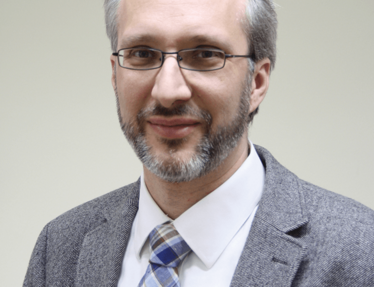Back to Biologics
Sitting Down With... Christian Schneider, Director of the National Institute for Biological Standards and Control (NIBSC), UK.

You took up your new role at NIBSC on April 1 – how does it feel?
I’m very proud to be the Director of NIBSC – it’s a bit like coming home to biologicals. The early part of my career was spent as a post-doctoral researcher in the Max Planck Institute in Germany, working in immunology, but later I got involved with regulatory affairs when I became a clinical expert in the area of biotechnology-derived medicines at the Paul Ehrlich Institute (one of the two German drug regulatory agencies). Directly before NIBSC, I was Medical Head of the licensing division at the Danish Medicines Agency in Copenhagen, and though it was very enjoyable, I missed working more in-depth on biologicals. I’m delighted to be back in this area, especially as NIBSC has a great deal of sought-after knowledge in biotechnology.
What is the most rewarding aspect of being involved in regulation?
It’s rewarding to know that the application of your knowledge and expertise – and the resulting decisions – make a huge difference to people. Not just to individual patients, but also – in the case of vaccines, for example – to healthy people, including children. And though it is rewarding, it is also challenging. A medical doctor working with a patient can make a big difference to that particular patient; but a regulator makes a big difference to hundreds or thousands of patients at the same time, by approving – or not approving – a drug.
What has been the most difficult moment of your career to date?
Almost exactly ten years ago, in 2006, a trial of a new monoclonal antibody (mAb) in the UK’s Northwick Park Hospital caused serious adverse events in six healthy volunteers – the TeGenero event. At that time, I was the head of the mAb section at the Paul Ehrlich Institute, and my team had just approved the clinical trial authorization for the same antibody in Germany. The German trials never went ahead, but we still had to examine why we had approved it and look again to discover if there was anything in the data that should have warned us about the dangers of this drug. We scrutinized everything, but in the end we found that all of the data were generated according to the then state of the art – and all our decisions were appropriate.
Nevertheless, the event drew attention to the fact that standard models for testing medicine safety – particularly animal models – are not always completely suitable for cutting-edge biotech products. We had to adapt the system to help ensure that the risk for similar events ever happening again was as small as absolutely possible, without, at the same time, hindering the development of advanced therapies. If we’d over-reacted and prevented the development of all mAbs then we would also have prevented some of the major breakthroughs that we’ve seen in the last ten years. There are always new products coming through and new mechanisms of action being found, so there will always be challenges. You can never reduce the risk to absolute zero, but we now have processes in place to ensure the risks are more fully understood. Appropriate risk minimization measures are in place too so that no clinical trial should ever be considered high risk.
How challenging is it for regulations to keep up with medical advances?
I was the first-ever chair of the EMA’s Committee for Advanced Therapies (founded in 2009) and I was lucky enough to be directly involved in implementing the updated regulations for advanced therapies. I served in that capacity for almost two full terms. It was very rewarding to build up the committee and to see the first approvals, but I also became aware that the regulatory system needs to evolve to accommodate these very specialized products. Advanced therapies are mainly made by small companies, such as spin-offs from universities, or by academic groups, but the European regulatory system was mainly built on “big pharma products”.
At present, the regulatory requirements for biologicals are very high – and rightly so – but some of them may or may not fit advanced therapies, and smaller companies may find it more difficult to meet them. I’m not suggesting we should have one standard for big companies and another for small ones; the regulations should apply to all products in the same way. However, I do think we need to find the right balance in regulating advanced therapies.
What do you hope to achieve at NIBSC?
I want to expand NIBSC’s network of expertise by collaborating with academia. Academic colleagues have a lot of knowledge, but often lack regulatory experience; conversely, in some areas, our knowledge would benefit from collaboration with academia – it’s a win-win situation.
In May, NIBSC will be celebrating its 40th birthday at a symposium that will address questions such as: how do we make best use of “big data” – such as from genomics? What are the next steps for mAbs and advanced therapies? How do we keep the vaccine pipeline flowing? It will be a networking event for academics, regulators and industry; I think it’s very rare that you get all these people together in one room. If you have only regulators, they talk only about regulators’ problems, and if you have only industry, they talk only about industry problems; but if you have all the stakeholders around one table, you can go into much more depth. You can find more details about the event at: www.nibsc40.co.uk
Director of the National Institute for Biological Standards and Control (NIBSC), UK.



















